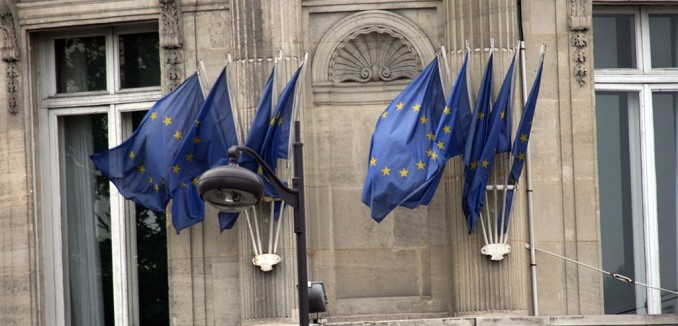European Union courts are dismantling sanctions designed to stall Iran’s nuclear program at the behest of companies and individuals targeted by the sanctions. Courts are demanding that European governments provide information – much of it sensitive and classified – justifying the asset freezes, visa restrictions, and other measures imposed by the international community against Tehran. In the absence of such evidence, which European agencies have declined to provide lest they expose delicate sources and intelligence, several courts have ordered restrictions removed.
The lifting of sanctions against Bank Mellat is postponed for now, pending an appeal by EU governments to Europe’s highest court. But the case illustrates the dilemma facing the European Union in its push to stop Iran from advancing the atom work. Government lawyers are telling the courts to trust them and the courts are refusing. To safeguard its sanctions policy and its economic pressure on Iran, the EU may have to present evidence – including sensitive intelligence – in court. But because of rules governing pan-European courts, all evidence would then become public which may damage clandestine operations and unravel the process of devising sanctions.
European governments are appealing current decisions, but Reuters describes literally “dozens of other cases… in the pipeline,” with the risk being a complete unraveling of the international sanctions regime. Western diplomats have relied on the sanctions net around Iran to provide a credible alternative to military action against the regime’s nuclear program. David Cohen, the U.S. Treasury Department’s Under Secretary for Terrorism and Financial Intelligence, told Reuters that the U.S. is getting increasingly concerned:
In Washington, anxiety over court rulings is mounting. “It’s a real concern of ours that the EU is having difficulties sustaining some of its designations,” David Cohen, the U.S. Treasury Department’s Under Secretary for Terrorism and Financial Intelligence, told Reuters.
[Photo: quinn.anya / Flickr]




